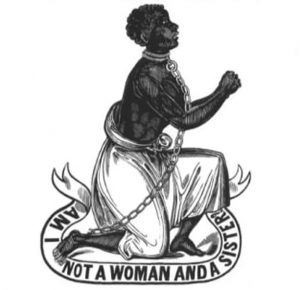At 19, Celia had had enough. The master had raped her routinely for five years, and she’d warned him he’d lose his life if he tried again. It was 1855 in the slaveholding state of Missouri. And Celia was a slave. His slave. So the master tried again, and she indeed took his life. The state of Missouri would take hers in return. We as pro se litigants know the courts can do strange things. We know our courts see justice as an ideal, an aspiration, rather than a responsibility. Still we are aghast when a court deals injustice in our own cases.
Even with daily horror stories of bias against self-represented litigants and blatant unfairness, we are surprised when it happens to us. Celia reminds us that our courts don’t promise justice. Our courts promise only judicial process. Any justice we find is something we’ve taken for ourselves. Celia’s case was somewhat remarkable. Most enslaved people in her circumstance never saw the inside of a courtroom. Justice, as it were, was typically summary, and arbitrary. The fate of a slave was decided on the plantation and implemented on the spot. But Celia was instead arrested by the local sheriff, charged with the crime of murder in the first degree, and assigned a team of lawyers by the court.
The case was groundbreaking, heavily attended in the abolitionist mood of the time. The rape of “any woman” was a crime in Missouri, and the victim’s intent to rape was a defense to a murder charge. But did the laws apply to slaves? Could an enslaved woman fall within the definition of “any woman” for purposes of Missouri’s rape statute? Twelve male landowners of Callaway County, Missouri — four of whom held slaves — answered in the negative.
Celia had been tried by a jury not of her peers, convicted of murder, and sentenced to die. Celia’s lawyers appealed her case to the Missouri Supreme Court, but having no faith in the courts, she escaped. Her freedom was short-lived; at 7 months’ pregnant, she was easy to find and recapture. The state’s highest court declined to stay her execution, and Celia was hung on the winter solstice.
But at least she had process. Right? Process need not be fair. As history professor Saidiya Hartman says, the unfairness in Celia’s case was that while slavery legally denied her the ability to consent, the law also criminalized her refusal to consent. Did she have human agency or not? It does us well to remember, when facing injustice, that process is all we can expect from our courts.
Don’t go looking for justice. Don’t go looking for rational decisions, free of contradiction. Look only for the opportunity to succeed in your case. Do what you need to win. Did you find justice in your judicial process? Share in the comments below.



